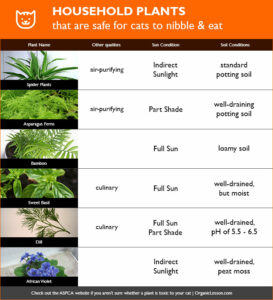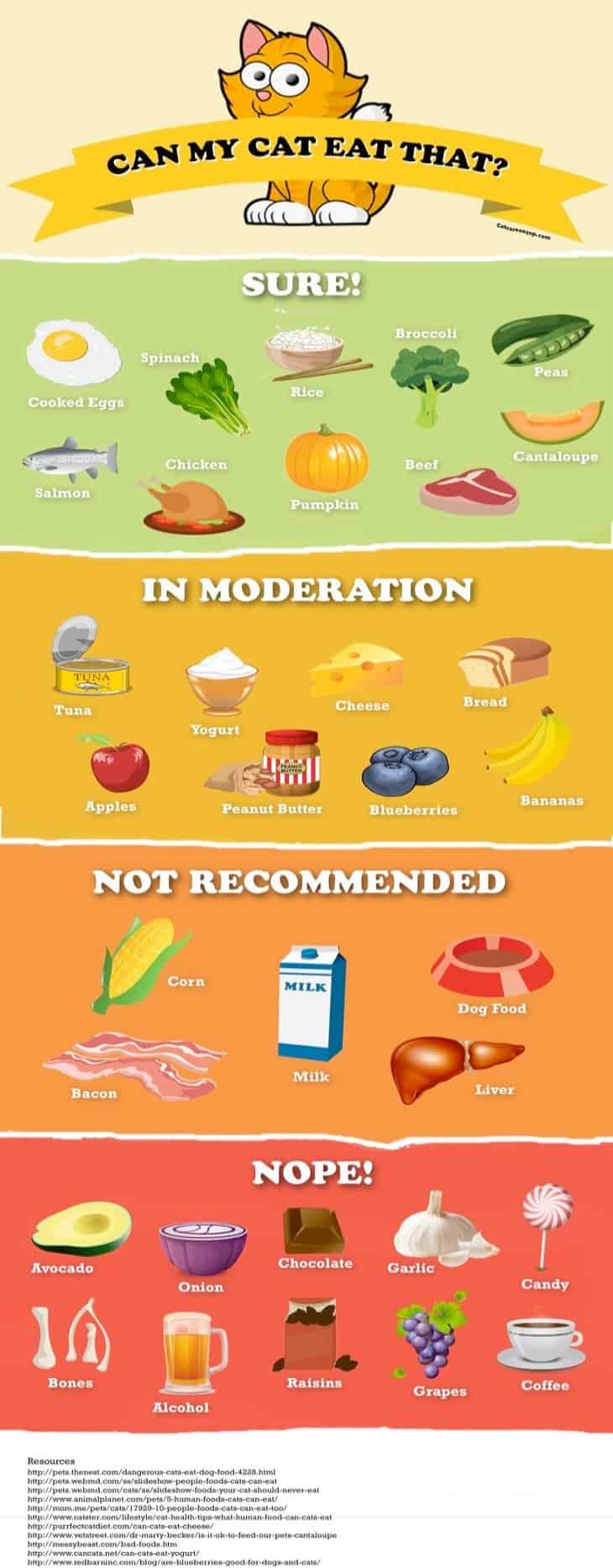Keep Your Kitty Safe
 Keep Indoors
Keep Indoors
When you allow your cat to roam freely outdoors, even for short periods of time, you expose her to perils such as cars, dogs, diseases, coyotes, poisons and cruel people. If you want your cat to be safe, keep her indoors. Some people let their cats outside because they mistakenly believe it’s cruel to keep cats indoors. Cats can live exciting and stimulating lives indoors and can experience nature safely within a catio, screened porch or other secure outdoor enclosure. The truth is that cats who are protected from the dangers outside live longer, happier lives.
Travel Safety
When transporting a cat, it is always best to play it safe and use a cat carrier. Even if she doesn’t seem fearful of car rides, keeping your kitty in her carrier is important for her safety. Cats can be squirmy and whether she plays or something spooks her, hiding under the driver’s side near the gas and brake pedals are a danger to everyone.
 Poisonous Houseplants
Poisonous Houseplants
Houseplants can present significant dangers to cats who are tempted to chew on leaves or flowers particularly. More importantly, it means keeping bouquets out of the house. Why? Some cut flowers or plants can be deadly to cats. Of all plants, lilies – specifically ones like Tiger, Day, Asiatic, Easter, and Japanese Show – are extremely toxic. These are commonly found in florist bouquets, as the flowers are fragrant, inexpensive and long-lasting. Very small ingestions of two or three petals or leaves, water from the vase – or even pollen licked off a cat’s coat – can result in severe, potentially irreversible acute kidney failure. For a complete list of all plants that are poisonous to cats, click here.
Common toxic houseplants include:
- Aloe Vera
- Amyrillas
- Azalea
- Lilies including Easter Lily, Day Lily (Hemerocallis), Tiger lily
- Croton (Joseph’s Coat)
- Daffodils (Narcissus species)
- Caladium (Elephant Ear)
- Dieffenbachia (Dumb Cane)
- Ficus (rubber plants, weeping, and variegated fig plants)
- Philodendron
- Monstera (Swiss Cheese Plant)
- Oleander
- Poinsettia
- Christmas Cherry
- Holly berries
If you believe that your pet has come into contact or ingested anything that is toxic, it is important that you contact your veterinarian immediately.
Toxic Household Cleaners
While most household cleaners such as surface cleaners are safe, some are much more dangerous to cats, including laundry and dishwasher detergents, bleach, drain cleaners, concentrated toilet bowl cleaners, rust removers, over cleaner, lime-away products, and pool cleaners. If accidentally licked or ingested by a cat, it can cause severe profuse drooling, chemical burns to the mouth and esophagus, difficulty breathing, and vomiting. When in doubt, make sure to wipe up any excess liquid or residue, and keep your cat out of the room while you are cleaning!
Antidepressants
Surprisingly, one of the top 5 feline toxins is a human antidepressant medication called Effexor. Other common antidepressants include brands such as Prozac, Zoloft, and Cymbalta – all of which can be quite poisonous to cats. For some unusual reason, cats seem to be drawn to the smell or flavor of Effexor, making it appealing to them. While most cats are difficult to pill, they electively eat this one on their own! Unfortunately, it can be quite dangerous when ingested, and result in signs of lethargy, vomiting, tremors, seizures, hyperthermia, and diarrhea. When in doubt, keep all human medications out of reach of your cat.
Human and veterinary NSAIDS
Never give a pain medication to your cat without consulting a veterinarian. Common, over-the-counter, non-steroidal anti-inflammatories (NSAIDS) include drugs such as aspirin, naproxen, and ibuprofen; while we use this commonly in humans, even ½ a pill can be potentially fatal to a cat. If ingested, NSAIDS can result in stomach ulcers and severe acute kidney failure.
Topical spot-on insecticides
These are common flea and tick medications that you can find at your veterinary clinic or at the local pet store. These typically contain high concentrations of a chemical derived from the Chrysanthemum flower. While very safe in dogs, pyrethrins or pyrethroids are highly toxic to cats. Accidental poisoning in cats typically occurs when pet owners apply dog insecticides to their cats, or when cats lick the medications off dogs. Always read the fine print, and never apply a “small dog” flea and tick medication to a “big cat” without consulting your veterinarian first! If cats are exposed to these insecticides, it can result in severe tremors, seizures, hyperthermia, and death when untreated.
Foods Safety Tips
Read More: http://www.aspca.org/pet-care/animal-poison-control/people-foods-avoid-feeding-your-pets

Download the APCC by ASPCA free mobile app which includes potentially life-saving information and hotline number.






